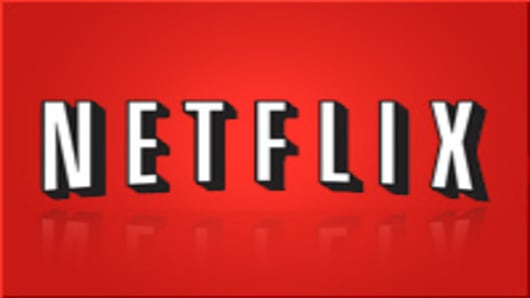Reed Hastings may be confident that "long-term streaming opportunity is as compelling as ever," as he wrote in his letter to Netflix shareholders. But shareholders aren't buying it — they're selling like crazy.
The stock is down over 20 percent in Monday after-hours trading, as of this writing. Investors are focused on this quarter's subscriber numbers — which fell short of the company's September 15 projections — and projections for the fourth quarter.
What happened? Netflix's decision to split its DVD and streaming services, and its short-lived plan to run the DVD business under the brand "Qwikster," has hurt Netflix's "hard-earned reputation, and stalled [its] domestic growth."
There's no question what Netflix did wrong — Hastings is remarkably apologetic in his 10-page letter to shareholders. The question is, how much will that ultimately ding subscribers down the line? Netflix's huge beat on earnings — $1.16 per share vs. the 94 cents Wall Street expected — means nothing to investors in light of the subscriber disappointments.
How bad is Netflix's "churn"problem? The company lost 810,000 total subscribers between the end of Q2 and the end of Q3. And the lowered projections weren't lowered quite enough: the company reported 21.45 million domestic streaming subscribers and 13.93 million DVD-only subscribers — compared to the 21.8 million streaming and 14.2 million DVD subscribers Netflix projected on September 15. The fourth-quarter projections are also negative.
How long will the carnage last? Netflix says the cancellation wave "peaked a few weeks ago and cancellations are now steadily declining." The company says that by December, net additions will be "strongly positive."
It seems to me that Netflix's subscriber issues stem entirely from its pricing changes, and not from increasing competition. Even with the likes of Hulu Plus and Amazon Prime's streaming service, no one has the variety or depth of content that Netflix does. And since Netflix has exclusive licensing rights for the likes of "Mad Men," that's an advantage the company will maintain for quite some time.
Netflix's other big story now is international growth: Today, it announced expansion to the UK and Ireland; in September, it announced expansion to 43 countries in Latin America and the Caribbean. Will its domestic subscriber snafus keep the company from investing in international growth? Will it be able to afford those expansion plan? Or will it become more important to invest in marketing to maintain and add subscribers here? I'll be listening for insight from Hastings in the company's Q&A earnings call.
Questions? Comments? MediaMoney@cnbc.com



